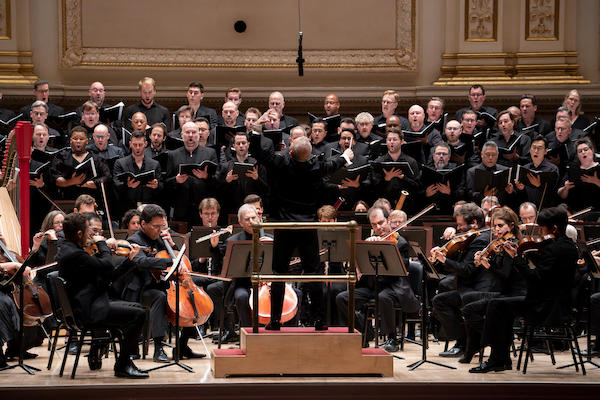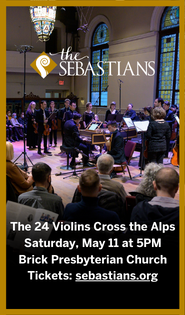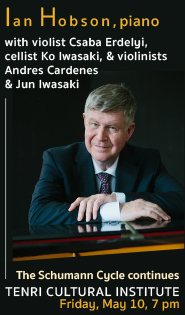The Met Chorus shines radiantly in music of loss at Carnegie Hall

The Met Orchestra played the first of two season-ending concerts at Carnegie Hall Thursday night, in a concentrated and weighty program that was organized around mourning and remembrance. There were two works and no intermission: the New York premiere of Oraison by Luis Ernesto Peña Laguna, and Brahms’ Ein Deutsche Requiem.
Soloists were soprano Lisette Oropesa (replacing Nadine Sierra) and baritone Quinn Kelsey who appeared in the Brahms. But the true star of this concert—conducted by Yannick Nézet-Séguin—was the Met Chorus.
The Orchestre Métropolitain de Montreal commissioned Oraison in 2021 as a choral tribute to victims of the Covid-19 pandemic, and was meant to played with Brahms’ German Requiem. Nézet-Séguin introduced the piece by dedicating it to members of the Metropolitan Opera lost to Covid, saying their names.
Oraison (Oration) has a somber tone that opens up into lightness and sunshine, and that made it a fine companion to Brahms. As did the quality of the music, and the superb singing from the chorus. The music is quiet to start, and the massed voices came together in a tonal, articulated whisper, a rich, mysterious, and intimate sound. The piece mixes languages, making the choral part a cloudy mix of the concrete and the abstract, and the chorus made this expressive and meaningful all the way through. They sang with a fluid vocal color, and one was impressed with the beauty of their sound and the musicality of their phrasing.
Moving from darkness to light, low to high, heavy to soft in a well-crafted arch and a coda that returns to the whispering music from the start, Oraison was an affecting balance of sweetness and sorrow.
The chorus was just as marvelous in the Requiem. The entrance on “Selig sind, die da Leid tragen” was exceptional and announced how the whole piece would go. The sound came out organically, as if the chorus had been singing below the threshold of hearing until the sound simply grew into audibility, then the rise in volume came as fluidly as an exhalation.
This was also an impressive performance from Nézet-Séguin and the orchestra. The pace in the Requiem was perfect throughout, and it was an integrated part of the excellent shape within movements and overall. Dynamics were smooth and sensitive, and the tempos made space for the chorus to give weight to every word. Rhythms were clear but never overstated, letting the drama within the music open up naturally.
The orchestral sound can only be described as Brahmsian, with the foreground and background placed at the same level, producing depth and breadth of sound, each instrument and section balanced with each other. Oropesa and Kelsey were seated in the orchestra on opposing sides, standing for the their solo parts.
Kelsey was notable, and his singing seems to get more beautiful each time one hears him. His sound in “Herr, lehre doch mich” was rounded, colorful, mellifluous. This and “Denn wir haben hie keine bleibende Statt” were communicative performances, as was Oropesa’s “Ihr habt nun Traurigkeit.” While Kelsey contained himself within the beat, she sang with a touch of rubato, her lines opening up and gliding above the orchestra. There was a feeling of joy in her singing.
But this was the chorus’s evening. One felt this was exactly what Brahms wanted, complex colors and emotions sung without sentimentality but a deep feeling of human fellowship. The loud, ecstatic cheers for the group and chorus master Donald Palumbo were, if anything, an understated response to this wonderful performance.
The Met Orchestra performs music of Matthew Aucoin, Bernstein, Tchaikovsky, and Verdi, with soprano Angela Blue and tenor Russell Thomas, 8 p.m. June 22. carnegiehall.org







Posted Jun 19, 2023 at 2:29 pm by Evelyn Barish
I attended and agree with George Grella entirely. The chorus in the German Requiem performed beyond anything I’ve ever heard. There is no other chorus in the world today that could match the depth, beauty, and extraordinary control of tone and level of power I heard that night.
One must also credit Nezet-Seguin. The chorus was the star, but he made it possible to bring the sound out from them.